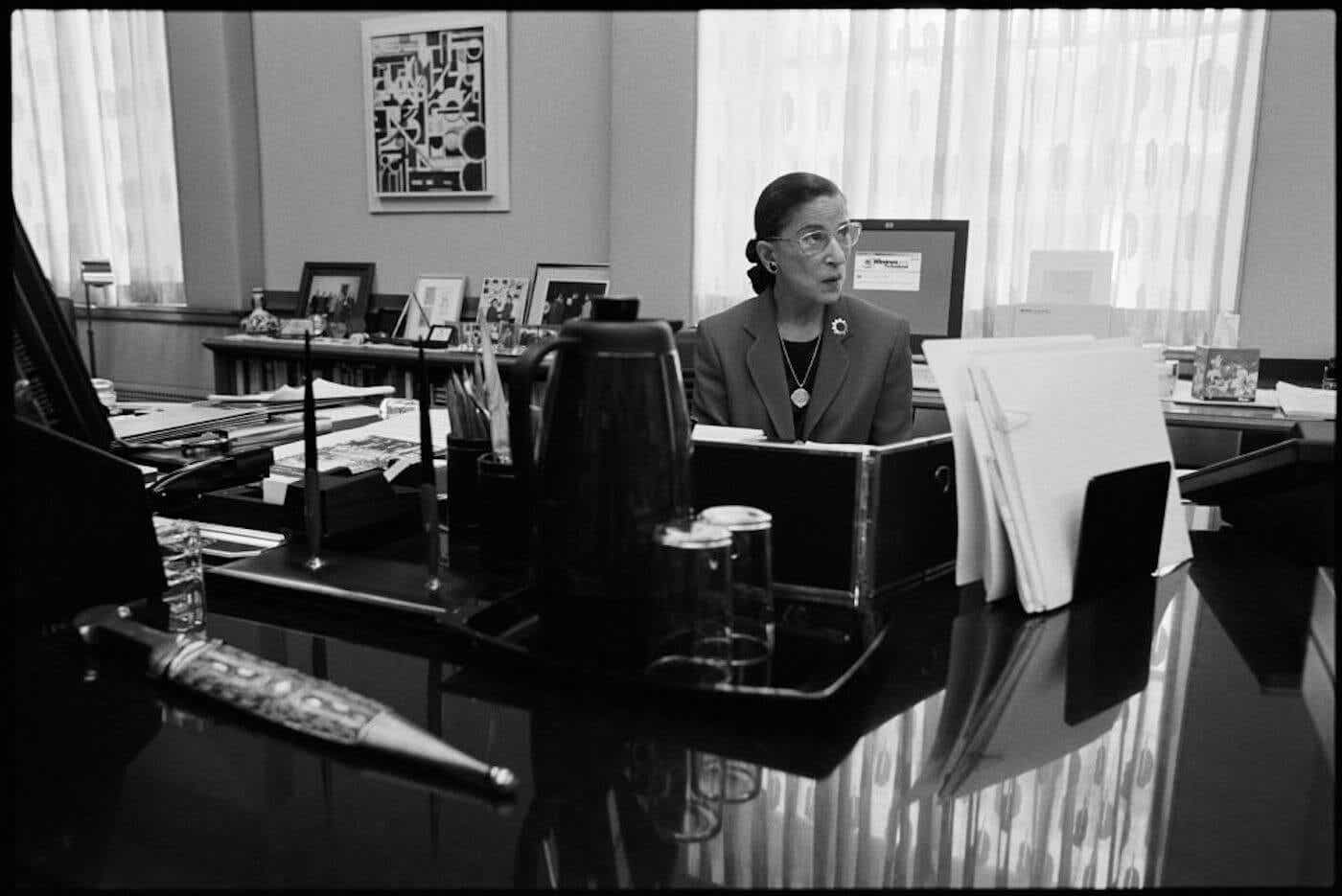In the spring of 1990, near the end of my second year in law school, the phone rang. “Judge Ginsburg would like to speak with you.” I waited.
While I cannot for many reasons (fear in the moment and passage of time among them) precisely recall what happened next, the conversation went something like this: “Hi, Andy,” came the diminutive voice through the receiver, “I thought it would be great if you came to work for me after you graduate. I hope you agree.” I readily accepted, and hung up the phone. I don’t recall saying goodbye…
Justice Ginsburg took care of her law clerks like family. Returning to Chambers from a visit to the dentist one day, the intercom in my office beeped. “Andy, how was the dentist?” This from someone who, deservedly, did not have a reputation for making small talk. Later in life, after I married and had my own family, our conversations always began with her asking about Darcy and the girls. Any note or letter, or flowers on a birthday, sent to RBG received a written reply, on her signature ecru card-stock. She wrote with a thin black pen, slightly askew on the card, in small cursive, the text always original and always concise — “With thanks for your birthday wishes and the spring flowers, cheerful on my desk, RBG”.
Working for RBG was like a full liberal arts education packed into one job, completed in one year. She mastered esoteric materials in hours or less — the rules of the Federal Energy Regulatory Commission, technicalities of patent law or tax or administrative law — your job was to figure it out and not fall too far behind. She would always seek a clerk’s view of a case before giving hers; she wanted the clerk’s draft of an opinion even though her terse and tight writing style was inimitable. You learned to argue, to appreciate and respect counterargument.
She was the ultimate professor — each word of text mattered, whether in a legal precedent or her own writing. She was an outstanding if merciless editor. In one case, having experienced the Justice’s thorough rewriting of my multiple drafts, I believed an opinion ready for circulation. Again the intercom rang, “I think it is still half a sentence too long.” Feeling somewhat confident that more flesh could not possibly be stripped from the bones of the page, I could only muster a remark on how it was already pretty short… Later that day, I found the opinion draft on my desk, one clause deleted in red pen, and a note, “Please circulate.”
About a year after that first phone call, I received another, this time from Justice Scalia. “Ruth told me I had to hire you when you finish working for her,” he laughed into the phone. Unbenknownst to me, she had reached out to him, even before my first day in her chambers, to recommend me Their deep and longstanding friendship is well-known; they shared passion for the law, but also for good food, the performing arts, especially opera and music, and travel. They were two legal titans driven together by their mutual faith in the law, their shared confidence in our democratic institutions and their deep respect for the American judicial institution. That they often disagreed on basic constitutional principles did not make then disagreeable with each other. So too, working for one was not much different from working for the other — they both demanded independent, rigorous thought. Neither needed a clerk to tell them they were right — it was more important to analyze and present where they might be wrong.
I’ve often wondered how Justice Ginsburg maintained her quiet confidence and optimism in view of her own personal history. One of only a few women at law school, denied jobs at prestigious firms due to both her religion and gender, losing cases which no doubt resonated with her own biography — shouldn’t one be angry, or at least despondent? But Justice Ginsburg believed that progress, or at least enduring change, would result from incremental change rather than swift jumps.Achieving it required patience, and careful calibration. Thus her legal strategy as a lawyer included taking on cases in which she could illustrate that gender discrimination resulted in adverse consequences for men, such as the denial of dependent benefits to the husband of a woman who was the primary wage earner, where the genders reversed, benefits would have accrued to the nonworking wife. It worked — brilliantly — for her as an advocate, and a judge and justice. Winning of course mattered, but RBG also believed she had to carry along those who would be ceding the way, often reluctantly, for her jurisprudence.
And win she did.
This article originally appeared on Medium.









